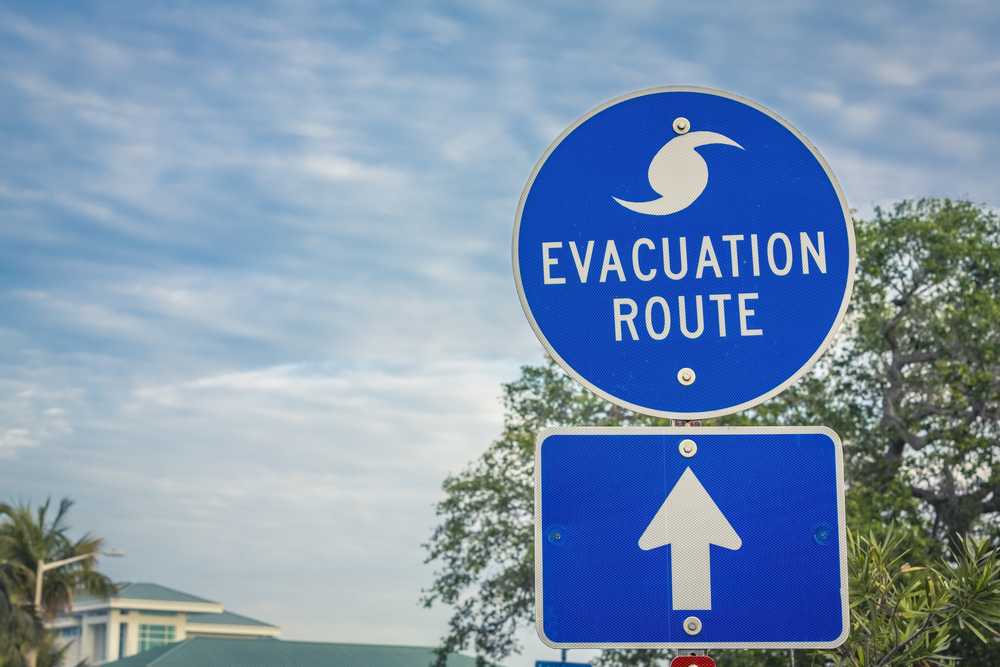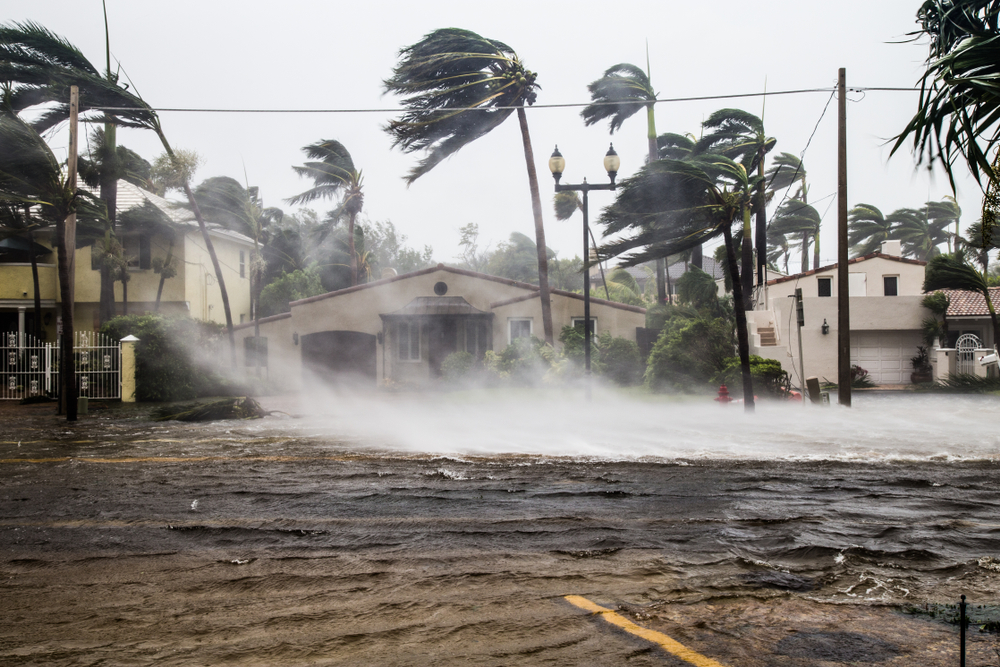Every area of the world has some sort of risk for a natural disaster. Whether it’s a hurricane, a tornado, an earthquake or even a tsunami, no one is really safe from nature’s wrath. Most REALTORS® know, though, that living on the coastlines often includes a threat of hurricanes and that this dangerous and deadly phenomenon can destroy everything in its path.
According to the National Hurricane Center and Central Pacific Hurricane Center of the Oceanic Atmospheric Association (NOAA), hurricane season for the Atlantic region hits on June 1 but begins in Mid-May for the Pacific. And the potential for these devastating storms continues until late fall (November 30).
Thankfully, meteorologists can often spot these storms before they hit land, providing ample warning for those who may be affected. Here’s how to help clients prepare for a hurricane, especially if they are new to coastal living.

Abide by Evacuations
In the case of a severe hurricane, evacuations may be mandatory to lessen the potential for fatalities. Make sure that homeowners understand that if they are advised to evacuate…then they need to listen!
Meteorologists understand the danger and destruction that these storms pose. Staying in a home to ‘ride out the storm’ could endanger the lives of everyone in the home. Tell homeowners to pack up any belongings that you can and head for safer ground.
Prepping the Home
If homeowners have to evacuate, or even if they can stay (in the case of lower risk storms), how can REALTORS® help them prepare their home to minimize damage? Unfortunately, there is only so much that can be done to protect or save a home and belongings. Hurricane Katrina left an entire city flooded and many homes were destroyed. Storms are unpredictable.
There are, however, ways to help safeguard your home to try to minimize the damage. Some of these recommendations to prep your home for hurricane season are actually very easy:
- Clean out gutters and drains. This will keep water from accumulating around your house.
- Use surge protectors. When a circuit is overloaded, a surge protector shuts off power.
- Protect the A/C unit. Covering the unit can protect it from all the debris being tossed about by the storm, and this debris can damage the system.
- Stock up on boards (plywood, that is!). You’ll need lots of wood to block and protect windows and other areas.
Homeowners should clean up the yard, too. No one wants a kid’s bike to be thrown about and tossed through a window from the winds. Anything that can be blown away by the hurricane should be removed and stored.
Assess the Home Before Hurricane Season
Some issues can be even bigger issues in the winds of a hurricane. If you or the homeowner noticed a crack in a wall or the foundation or if REALTORS® note any structural issues with a new listing, advise clients to get it repaired! Any weakness in a home could result in even worse damage after a major (or minor) hurricane.
Rain amounts could be substantial during the storm. The roof needs to be able to take a lot of abuse, but it also needs to keep out the glut of water. Did the homeowner report or notice any leaks recently? How is the structure of the roof? Even if homeowners believe they have the very best roof, advise them to have a pro come in and inspect the roof to ensure the home is prepared for any upcoming winds and rain.
Check out any decks, too. Make sure they can sustain winds and rain. Do boards need to be replaced or reinforced?

Make Sure Homeowners are Covered
Storms are unpredictable. No matter how well we plan or prep, a home could still sustain significant damage. Before the storm season hits, though, advise clients to review their homeowner’s insurance.
Sometimes homes aren’t covered in the event of a flood. Hurricanes can lead to flooding. If a home isn’t covered, the homeowner may be responsible for all that damage. Talk to clients about reviewing their coverage and have them talk to an agent to discuss any additional riders or coverage options they might need to add. Nerd Wallet notes that homeowners may need to add windstorm insurance. The extra cost could save your clients in the long run!
Personal Needs & Considerations
The home and property have to be protected, and so does the individual! Hurricane season means that all homeowners need to have plans in place in case of evacuation, and your clients on the coast (or in a hurricane’s path) need to have a list of all the necessities they plan to take in case of evacuation.
Here’s what all homeowners should have ready when (or if) they are forced to evacuate (this list may be a great resource for those just moving into a hurricane-prone state):
- Insurance information (health, car, home, etc.)
- Legal Documents (will, social security cards, titles, birth certificates, wedding license, etc)
- Cherished mementos (baby books, albums, heirloom jewelry, etc.)
- Credit/debit cards, checks, etc.
- Necessary prescription medications
- Cell phones and chargers (and/or other portable devices like tablets)
- Basic necessities (clothes, shoes, personal care items, food, etc.)
- Backup drive or a computer
Pets are allowed to evacuate with owners, and the FDA encourages all owners to take their pets during evacuations. Sometimes shelters prohibit pets, however, there are many pet-friendly motels that will allow furry friends. REALTORS® can provide a list of pet-friendly options for clients, and hurricane checklists may be helpful for those new to a hurricane-prone area. Homeowners should be sure all pets are up-to-date on all vaccines (instruct them to keep vaccine records with other important documents).
Whether homeowners can stay at home or if you need to evacuate, they should always have an emergency kit on hand. This can and should include first aid items, flashlights and other survival necessities.
Where Should You Advise Homeowners to Go?
New clients who are house hunting in coastal areas may be curious about where to go during an evacuation. What should you tell them?
In the case of evacuation, homeowners should know their route and their final destination. Are they heading to a friend’s house, to a relative in another state or maybe to a shelter or hotel?
Homeowners should have a pre-arranged destination in mind and schedule out the route. While using a GPS on a phone or other device is convenient, they should also pack paper maps for backup.
REALTORS® in coastal regions understand that hurricanes may be a common concern. Thankfully, meteorologists can spot these massive storms in time to warn residents and help them prepare. However, clients new to the area might not be familiar with emergency preparedness related to hurricanes. Help them understand what they need to do in case of a major storm. All homeowners should check their insurance coverage and consider adding additional coverage for perils like flooding (which might not be covered under a basic policy).
REALTORS® should advise homeowners to take precautions before hurricane season to prepare their home for damaging winds and heavy rain; schedule roof inspections and other home repairs before any ominous weather is on the horizon. Most importantly, when authorities tell homeowners to evacuate…make sure they really understand that they shouldn’t wait! In case of evacuation, tell new residents that they need to grab pets, all important documents, the basic necessities, communication devices, mementos and other valuables and get out before the storm hits.







